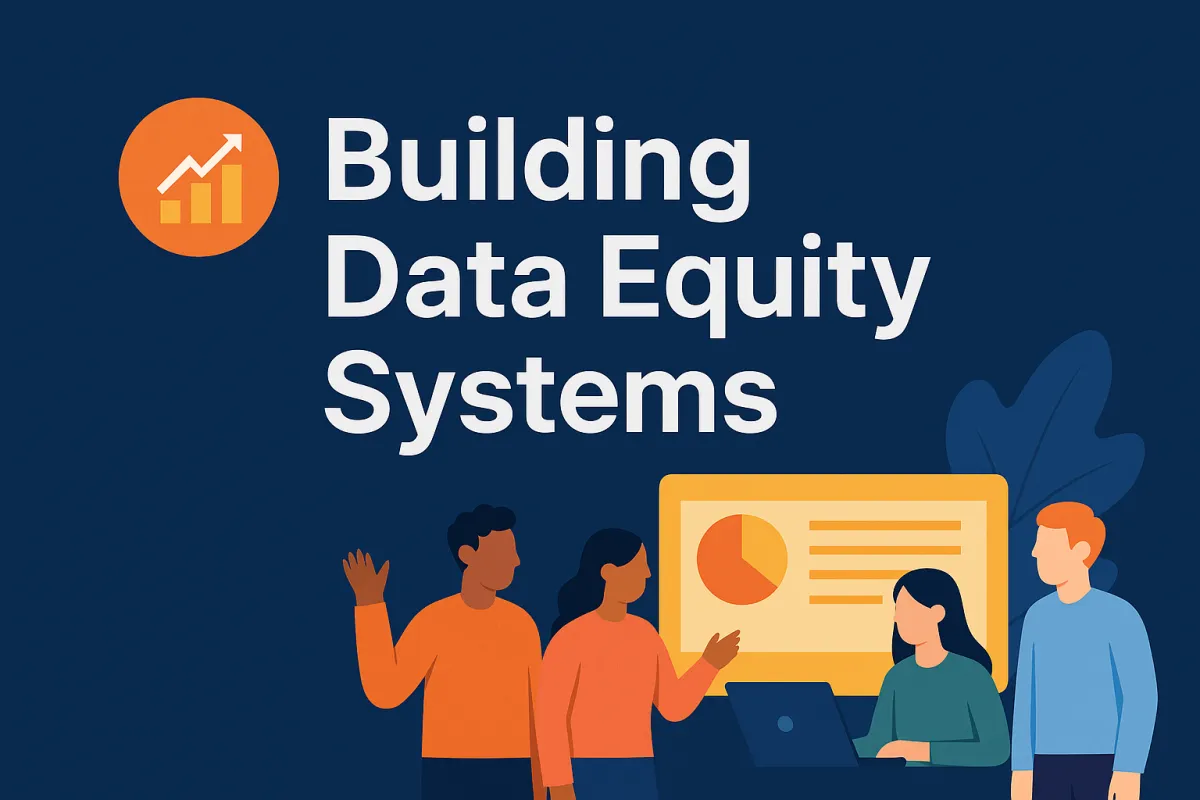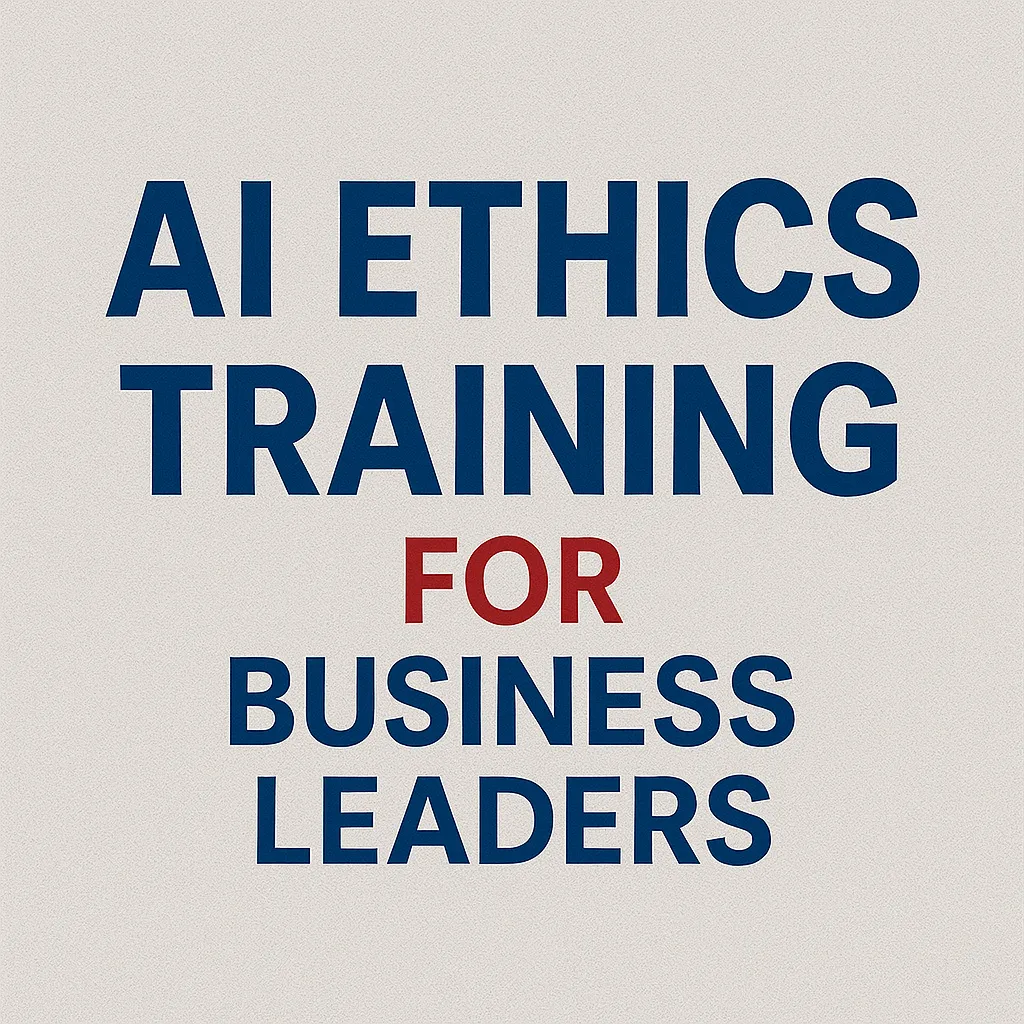Shaping the Future of Responsible AI
AI governance, ethics, and compliance solutions for businesses, governments, and innovators.
AI is powerful—but without governance, it’s risky

AI is powerful
but without governance, it’s risky
As AI integrates into decision-making, businesses and governments face increasing regulatory scrutiny. Ethical AI is no longer optional it’s essential for compliance, trust, and innovation.
☞ AI Regulations Are Here – Stay compliant with global AI laws (EU AI Act, US AI Bill of Rights).
☞ Bias & Transparency Issues – Ensure fair, responsible, and accountable AI development.
☞ Future-Proof Your AI – Build AI systems that are ethical, compliant, and scalable.
WHAT WE OFFER
Comprehensive AI Governance Solutions

AI Ethics & Governance Consulting
Provide clients with comprehensive career assessments to identify their strengths, interests, and goals. Offer personalized career planning sessions where you help clients define their career path, set achievable goals, and develop action plans to reach them.

AI Risk Assessment & Bias Audits
Assist clients in crafting professional resumes and optimizing their LinkedIn profiles. Offer services to highlight their skills and achievements, making them stand out to potential employers. Provide resume templates or samples as resources.


Regulatory Compliance & AI Law Advisory
Conduct mock interview sessions to help clients improve their interviewing skills. Offer feedback on their responses, body language, and overall interview performance. Share tips and strategies for handling different types of interviews, including behavioral and technical interviews.

AI Governance Strategy Development
Develop a tailored job search strategy for each client, including guidance on networking, utilizing job search platforms, and targeting specific industries or companies. Provide resources and templates for cover letters, thank-you notes, and follow-up emails.


Government & Public Policy Advisory
Conduct mock interview sessions to help clients improve their interviewing skills. Offer feedback on their responses, body language, and overall interview performance. Share tips and strategies for handling different types of interviews, including behavioral and technical interviews.
Facing Legal Questions?
Let’s Find Clear Answers Together
Whether you're facing a legal challenge or planning ahead, our experts are here to help. Get personalized advice tailored to your needs no pressure, just clarity.
Book a Free Consultation Today!
Let’s turn your questions into confident decisions.
Stay Ahead of AI Regulation Changes
Live Regulation Updates
EU AI Act Updates
New compliance deadlines for AI developers.
March 2025
US AI Bill of Rights
White House releases new AI accountability guidelines.
Feb 2025
China’s AI Regulation
Stricter guidelines for deep fake technology.
Jan 2025
Become a Certified AI Ethics Professional
Develop expertise in AI governance, compliance, and responsible AI practices. Our certification programs are designed for professionals, compliance officers, and businesses looking to lead in ethical AI.
AI Ethics in Action Lessons from Real-World Cases

Building-Data-Equity-Systems-Blog-Thumbnail
Building Data Equity Systems: A Step Toward a Fairer Digital Future
Introduction: Why Data Equity Systems Matter
In a world increasingly driven by data, data equity is no longer just a technical concern — it is a social necessity. Building data equity systems means designing inclusive frameworks that empower marginalized communities, correct historical injustices, and promote fairness across sectors such as health, education, and governance. As technology and AI evolve, ensuring that data serves all communities equitably has never been more urgent.
The Historical Roots of Data Injustice
Data has long been a double-edged sword. From 19th-century abolitionist movements to the 20th-century civil rights movement, marginalized groups have used data to expose injustice and demand change. But data has also been used to entrench systemic discrimination — like in redlining practices that excluded communities of color. Acknowledging this dual history is essential to understanding why data equity matters today.
Grassroots Movements and the Rise of Data Advocacy
Local human rights organizations emerged to document abuses and push for accountability. Their use of data laid the foundation for today’s data justice movements. The key takeaway: true data governance must center on lived experiences and community leadership.
Data for Justice: A New Approach
Data equity is about fixing structural imbalances that have historically excluded certain populations from data systems. This approach calls for communities most impacted by data to participate in — and lead — the design, interpretation, and application of data practices.
Core Concepts of Equitable Data Systems
Community-Driven Data Collection
Data that is collected with communities, not for them, leads to deeper, more relevant insights. Involving people at every stage — from choosing indicators to analyzing results — ensures that data reflects real needs and drives actionable outcomes.
Data Sovereignty
Data sovereignty means local communities own and control how their data is collected, interpreted, and used. This principle promotes autonomy, fosters trust, and protects against misuse.
Frameworks and Collaboration for Health Equity
Models like the ConNECT Framework emphasize principles such as contextual awareness, inclusive communication, and specialized training. Building effective data equity systems requires cross-sector collaboration — between governments, NGOs, researchers, and communities.
Measuring Success: Equity-Focused Evaluation
Assessing whether a data project advances justice requires an intentional evaluation framework. Equity-centered models such as RE-AIM ensure that disparities are addressed and progress is measurable.
Case Studies and Effective Practices
Community-Led Leadership in Data
Projects like the Ferguson Commission and Native Lands Advocacy Project demonstrate how community leadership in data efforts produces stronger, more tailored outcomes. They show that solutions rooted in local voices are more sustainable and impactful.
Lessons from ARPA Equity Plans
Municipalities that implemented American Rescue Plan Act initiatives integrated public data and citizen input into resource allocation — providing a roadmap for equity-centered governance.
Practical Tools to Advance Data Equity
StrategEase: Helps organizations identify change strategies that match their goals
Multimedia Organizing Toolkits: Educate and activate local communities
I-RREACH Framework: Builds dialogue between implementers and communities
Equitable Evaluation Models: Frameworks like RE-AIM ensure data is assessed with an equity lens
The Road Ahead: What Comes Next?
From Reactive to Proactive
To truly build fair systems, we must bake equity into data practices from the beginning — not patch it on after harm is done.
Tech for Movement Building
Digital tools like social media amplify local voices and coordinate organizing at scale. The future of data equity depends on blending grassroots strategies with digital platforms.
Closing the Digital Divide
Without equitable access to internet and technology, many communities cannot fully participate in the data ecosystem. Bridging this gap is a must.
Policy and Regulation
Robust, transparent data governance policies must be established to protect rights, prevent misuse, and manage global data flows.
Storytelling with Data
Data must not just be about numbers — it should also reflect human stories. Linking narrative and quantitative insight gives communities the power to reshape the systems that affect them.
Conclusion: Data as a Tool for Liberation
Building data equity systems is not just about technology — it’s about dignity, power, and inclusion. When communities lead, technology becomes a tool for liberation rather than control. Through proactive design, accessible tools, and fair policies, we can build a data future that works for everyone.
Stay Ahead with NexterLaw
Be the first to know about legal trends, expert tips, and our latest services. We deliver real value – no spam, just smart insights and useful updates. Subscribe to our newsletter and stay informed, protected, and empowered.
We respect your inbox. Unsubscribe anytime.

COMPANY
Quick Links
Copyright 2025. AI Review Marketing Agency. All Rights Reserved.








